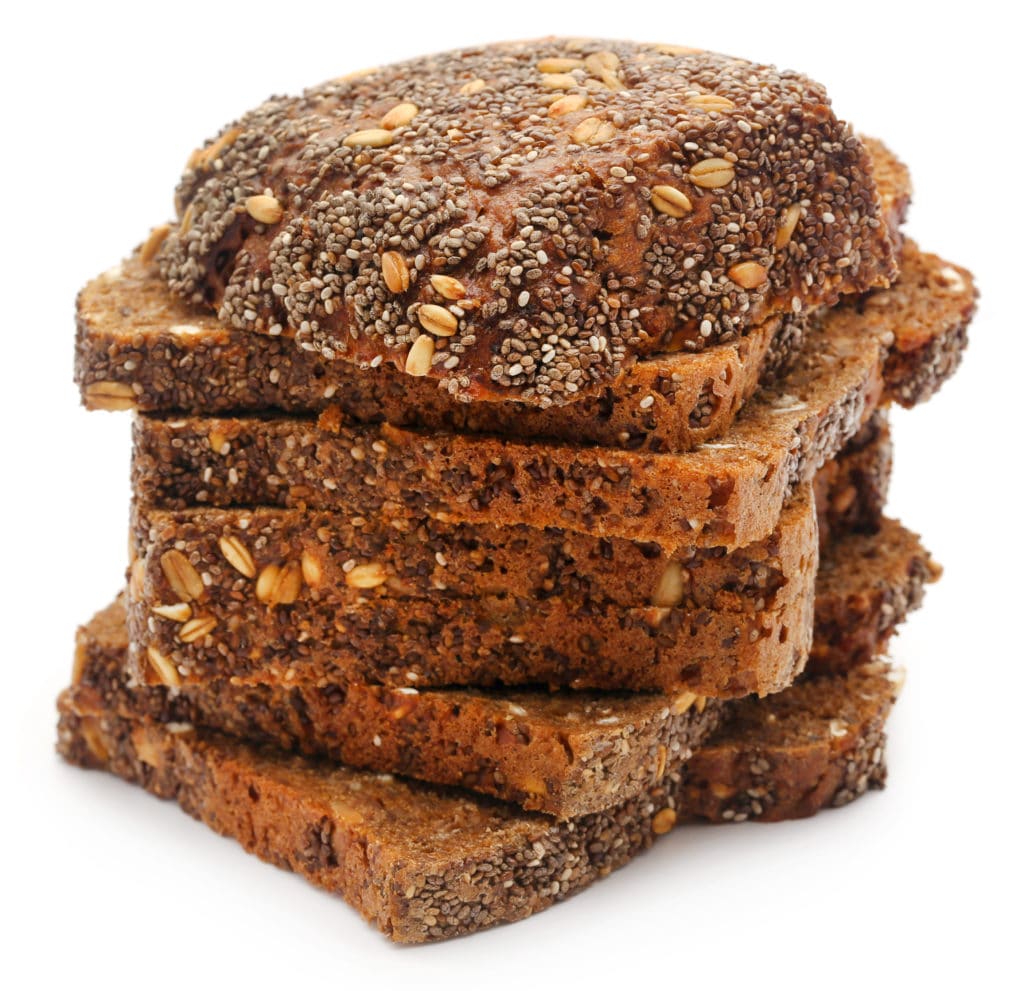Bread benefits the digestive system in many ways; from promoting a good intestinal transit to the treatment of hemorrhoids.
Whole grain bread is good for the digestive system particularly for the following two reasons:
- It contains large amounts of dietary fiber, soluble and insoluble, which prevents many gastrointestinal conditions.
- It is a natural prebiotic that encourages the beneficial microflora of the large intestine.
Plenty of fiber!
The dietary fiber contained in whole grain bread offers many advantages to digestive health:
- Combats reflux, duodenal ulcer, diverticulitis, constipation, and hemorrhoids.[1]
- As it requires extra chewing, fiber promotes the production of saliva and gastric acid, and in addition increases the feeling of fullness.[2]
- It has a natural laxative effect that regulates the evacuations.[3]
- Increases the volume of stool, making them longer and smoother, which in turn moves them faster through the intestine, reduces pain and inflammation, and facilitates going to the bathroom.[4]
Additionally, the dietary fiber of whole grains decreases the risk of developing obesity and becoming overweight. It also reduces cholesterol levels and improves blood sugar levels.[5]
Wheat bran is the best according to the experts!
- The fiber of cereals (such as wheat, rye, and corn) is the most effective when it comes to increasing the volume of feces, and wheat bran is considered by specialists as the number one in this regard.[6]
- Wheat bran is popularly used to reduce the risk of hemorrhoids, stomach cancer, and colon diseases, as well as for the treatment of constipation, irritable bowel syndrome, and type 2 diabetes.[7]
Good bacteria!
Whole grain bread works like a prebiotic because it contains special carbohydrates that feed the beneficial gut microbiota.
- It stimulates the growth of Bifidobacteriain the colon, a type of lactic acid bacteria that strengthen the immune system and fight the following gastrointestinal problems:
- Constipation
- Infection caused by Helicobacterpylori
- Irritable bowel syndrome
- Diarrhea
- Ulcerativecolitis
- It contains ingredients such as whole wheat flour, corn whole grain flour, and wheat dextrin (soluble fiber that is added to foods to increase its nutritional profile) that are listed as effective prebiotics.[8]
Bread against hemorrhoids!
Hemorrhoids are small blood vessels located in the walls of the rectum and anus which, due to pressure, become inflamed and fill with blood, causing discomfort, pain, and sometimes bleeding when evacuating.
Hemorrhoids can be caused by not eating enough fiber, not drinking enough water, prolonged constipation, spending a lot of time sitting, or when suffering from chronic diarrhea. They also commonly appear in the last trimester of pregnancy due to the additional weight of the baby or after delivery.
For this reason, the most common recommendation of the medical community for the prevention and treatment of hemorrhoids is a simple nutritional intervention. That is, increase the consumption of dietary fiber and drink enough liquids![9] Therefore, do not forget to include foods rich in fiber such as fruits, vegetables, whole grains, and whole grain bread in your daily eating plan.
[1] https://academic.oup.com/nutritionreviews/articleabstract/67/4/188/1901012?redirectedFrom=full
[2] http://www.mdpi.com/2072-6643/5/4/1417/htm
[3] http://www.mdpi.com/2072-6643/5/4/1417/htm
[4] http://www.mdpi.com/2072-6643/5/4/1417/htm
[5] https://www.ucsfhealth.org/education/increasing_fiber_intake/
[6] http://www.mdpi.com/2072-6643/5/4/1417/htm
[7] http://www.webmd.com/vitamins-supplements/ingredientmono-867-
[8] http://www.mdpi.com/2072-6643/5/4/1417/htm
[9] https://www.nhs.uk/conditions/piles-haemorrhoids/treatment/

